Faculty Giants
Catching up with 15 of the veteran Princeton professors who transferred to emeritus status in June 2013
In the Dec. 4, 2013, issue, PAW looks at the effect that the University’s retirement-incentive program has had on the faculty in recent years. This Web-exclusive sidebar highlights 15 of the distinguished professors who have transferred to emeritus status: Mark Cohen, Frederick Dryer *72, Thomas Espenshade *72, Jacques Fresco, Charles Gross, András Hámori ’61, Richard Miles, Edward Nelson, Daniel Rodgers, Gilbert Rozman *71, Anne-Marie Slaughter ’80, Robert Socolow, Zoltán Soos, Maurizio Viroli, and Frank von Hippel.
Biographies of all 32 professors are available from the Office of Communications.
Mark Cohen, professor of Jewish Civilization in the Middle East, 30 years.
As a schoolboy in upstate New York in the 1950s, Mark Cohen never thought of applying to Princeton. “It wasn’t on my radar because Jewish people just didn’t send their children or even think of sending their children to Princeton,” he recalled. He attended Brandeis, Columbia, and the Jewish Theological Seminary, emerging as an ordained rabbi and scholar of medieval Jewish history. Cohen’s expertise on relations between Jews and Muslims in Arab lands in the Middle Ages became much sought out after 9/11. “That was quite unexpected,” he said. The classic wisdom was that Jews adapted and flourished although, like Christians, they were second-class subjects. “I’ve tried to balance the myth of absolute freedom and tolerance and the counter-myth of absolute persecution,” said Cohen, whose classic Under Crescent and Cross: The Jews in the Middle Ages has been translated into six languages with three more underway. Cohen remains director of the Princeton Geniza Project, an online library of the trove of ancient documents found in a Cairo synagogue’s storeroom in the late 19th century. Cohen, a pillar of Near Eastern Studies and Judaic Studies at Princeton, will still commute from Manhattan to teach a graduate seminar and finish a book on Maimonides.
Frederick Dryer *72, mechanical and aerospace engineering, 32 years.
Although Frederick Dryer officially served 32 years on the faculty, he has spent 47 of his 69 years at Princeton and he will remain a researcher. “I’m having too much fun” to stop, said the longtime NASA adviser whose publications top 200. Dryer has an experiment on the International Space Station. He came to Princeton just for a master’s degree but the academic hook was set. He was first on the research staff for decade and fondly remembers the hand-written note then-President William Bowen *58 sent when he and mentor Irv Glassman landed a large grant. “The university as a whole is much more corporate than when I joined in the ’60s,” said Dryer. But its success in integrating social sciences and humanities with engineering and science makes Princeton “a very unusual place” and a fertile ground for preparing students to solve societal energy and environmental challenges. Dryer believes it will be 30 to 50 years before the country can wean itself from fossil fuels and “we need to find the right ways to do that.”
Thomas Espenshade *72, sociology, 25 years.
Thomas Espenshade found Firestone Library ringed by protesting students one Sunday in May 1970 after the U.S. invasion of Cambodia. “It was sort of a barricade, and they tried to stop me from entering. They said, ‘We want you to take the afternoon off and reflect on your purpose in life.’ I said, ‘I know what my purpose in life is; now let me go into the library,’” recalled the sociologist. Espenshade, who once planned to be a high school math teacher, for many years concentrated on demographic studies in the Office of Population Research, including one on the fertility of Old Order Amish. But his focus later turned to diversity in higher education, including the award-winning 2009 book No Longer Separate, Not Yet Equal: Race and Class in Elite College Admission and Campus Life, coauthored with Alexandria Walton Radford *09. He jokes that he only became “a true sociologist railing against inequality in my 60s.” Espenshade now holds three titles: professor emeritus (“People say, ‘Oh, that’s so wonderful,’ but it comes automatically, like grits”), lecturer with the rank of professor, and senior scholar. He’s still teaching a graduate course on demography and is embarking on a video ethnographic study of impoverished preschoolers and parents. “I tell people I’m retired in name only. I’m simply rebalancing my portfolio. I’m hoping there’s still some gas in the tank,” Espenshade said. He signed the retirement papers because “I didn’t want to be like Willie Mays stumbling around in centerfield trying to catch a fly ball when he played for the Mets.”
Jacques Fresco, molecular biology, 53 years.
Molecular biologist Jacques Fresco was born in the Bronx to parents who emigrated from Turkey; he owes the surname to Sephardic Jewish ancestors driven from Spain in 1492 during the Inquisition. He came to Princeton in 1960, got tenure in two years, and was made full professor in four. Fresco has published 167 papers and abstracts and won patents for work focusing on DNA biochemistry including gene repair for sickle cell anemia. “I will continue to do research full time,” he said. He remembers having to use “the giant IBM computers that were associated with either the Forrestal Plasma Physics Laboratory or with defense research groups on campus” for computational work that now can be done with “a good laptop.” Fresco said the student body “was already very impressive when I came here, but the proportion of outstanding students [has] increased. We’ve been fortunate to have some exceptional presidents. I feel especially strong about Bob Goheen [’40 *48]. He was a most unusual man, who saw his position as one not only to lead Princeton, but to impact American society.”
Charles Gross, psychology and neuroscience, 43 years.
Charles Gross’s essay about growing up in Brooklyn is titled “Wait: A Memoir of a Red Diaper Baby.” His father was a communist who lost his teaching job during the McCarthy era, and the “wait” referred to his injunction to Charles to say nothing to jeopardize his prospects. “I incorporated all my parents’ political views,” he said, but they never sent him to the communist camps, square dances and other youth activities to which friends sent their kids. Instead they took him camping each summer at Lake Placid and helped him become the youngest Eagle Scout in Brooklyn. From Erasmus Hall High School he went to Harvard, studied biology, and won a Fulbright to Cambridge University, where he rowed for Jesus College, enjoyed “luxuriating” in political freedom, and fell into a career in psychology and neuroscience in which he did pioneering research on the primate visual system. As a young teacher at Harvard he joined antiwar rallies and visited a SDS sit-in at University Hall, but left before a police raid; the lone assistant professor inside was fired. He got arrested in his first week at Princeton in 1970 outside the Institute for Defense Analyses, but by then had tenure and a department chair, Leon Kamin, who had been blacklisted in the McCarthy era, so “there wasn’t too much to worry about,” Gross said by telephone en route to a literary festival in Saratoga Springs, N.Y., with wife Joyce Carol Oates, the English professor and novelist. They wed in 2009 after both were widowed. Gross has taught half-time for seven years and is teaching history of neuroscience this fall. “The nicest part of my life at Princeton was really in my laboratory,” Gross said. The lab is closed but the pig and goat roasts that the outdoorsman from Brooklyn threw for graduate students and postdocs remain part of a large legend.
András Hámori ’61, Oriental languages and literature and Near Eastern studies, 46 years.
András Hámori was born in Budapest, Hungary, and studied Arabic and Persian at the University of Vienna before entering Princeton as a junior. “I was very happy. I couldn’t eat at Commons,” he said, but found a home “in Wilson Lodge, the ancestor of what’s Wilson College today. It was as diverse as anything at that time at Princeton.” He did graduate work at Harvard on classical Arabic and ancient Semitic languages and returned to Princeton as a scholar of medieval Arabic poetry and prose, including One Thousand and One Nights. Generations of students also know him as an Arabic teacher. Plans for retirement include more walks with wife Ruth in the desert Southwest and improving his vibrato on the cello. The favorite moment of five decades at Princeton? “When girls arrived. It improved the overall ambience in a very good way,” said Hámori, who has never attended Reunions. “I thought that I’d start with my 50th, but didn’t feel old enough.” Now his plan is to “wait another decade.”
Richard Miles, mechanical and aerospace engineering, 41 years.
Speaking before delivering a lecture in Granada, Spain, Richard Miles said he was giving up teaching, but pressing forward with research on using advanced lasers for fluid dynamics and diagnostics. His lab is trying to develop a laser to detect land mines at a safe distance by sampling trace gases they emit. Such a device might also be used to monitor poisons and pollutants. “I have a pretty large research program — six graduate students, three staff members and a technician — and I intend to keep that going for the next few years,” said Miles, who has nine patents and six pending. He joined the faculty in 1972 after finishing a Ph.D. at Stanford and found “the small school environment” to his liking. “It was a very mutual, supportive environment,” with an abundance of colleagues with whom to collaborate, he said. “I knew Bill Bowen and Neil Rudenstine [’56] and Aaron Lemonick pretty well.” He credits Shirley Tilghman with “enhancing the scientific capabilities of Princeton quite dramatically.”
Edward Nelson, mathematics, 54 years.
Edward Nelson spent two years during the Korean War era working as a conscientious objector at Methodist Hospitals in Gary, Indiana, to fulfill his draft obligation. “[D]eep religious beliefs are fundamental to his nature,” faculty colleagues wrote in a tribute. After the University of Chicago he did a postdoctoral fellowship at the Institute for Advanced Study and joined the Princeton faculty in 1959. Nelson, spent part of his childhood in Rome where his father worked for the Italian YMCA and knew when he “was 12 or 13 I was going to be a mathematician. I’m so lucky. I got paid for doing what I love.” Nelson, who works on math logic and mathematical physics, said, “Now that I have retired, I’m taken up a hobby: mathematics.” He’ll do it from home. “I still have an office, but I’m going to suggest they use it for someone else,” he said. For Nelson, the highlight of teaching came one day 36 years ago when a freshman reacted “with awe and wonder” when Nelson drew a parabola and showed the class how to find the exact slope of the tangent line. That freshman was Stanley Jordan ’81, the renowned jazz guitarist. “If more students were like that, people would be clamoring to teach undergraduates rather than regarding it as a chore,” Nelson said.
Daniel Rodgers, history, 33 years.
Dan Rodgers was among the Brown University students who answered the call when the Rev. Martin Luther King Jr. summoned volunteers to join civil rights demonstrations in Alabama in spring 1965. “The world was changing dramatically under everyone’s feet,” said Rodgers, who became a VISTA volunteer after college in rural Oregon. Working with struggling families was a tough slog and Rodgers went to Yale to study history. “I was very lucky to be admitted, and very, very fortunate in the education I got there.” His adviser was the great C. Vann Woodward. Princeton eventually lured Rodgers from University of Wisconsin-Madison. He had regrets about leaving a public university serving many first generation college students, but was thrilled by the “extraordinarily vibrant conversations among my history department colleagues. ... You’d begin to talk about something you’re interested in, and before you’d gotten 40 feet down Dickinson Hall, you’d get a half dozen suggestions.” His 1998 book, Atlantic Crossings: Social Politics in a Progressive Age, challenged the idea of American exceptionalism. Two years ago he won the Bancroft Prize, the highest honor in the field of American history, for The Age of Fracture.
Gilbert Rozman *71, sociology, 43 years.
When Gil Rozman was a teen, he won a trip to Washington in a Minneapolis Star contest and, Bill Clinton-like, got to meet Senators Hubert Humphrey and Eugene McCarthy as well as John F. Kennedy and Lyndon B. Johnson. A passion for politics and international affairs was set. At Carleton College he spotted an ad recruiting students for Princeton’s new Critical Languages program. The sophomore leapt at the opportunity and became one of the 14 original “Critters” in 1963-64 and the only one to tackle two languages, Chinese and Russian. (Other languages were Turkish, Persian, and Arabic). “The timing was perfect. It changed my life,” said Rozman, who “was immediately socialized into the same community of faculty, graduate students and undergrads interested in East Asia and international relations that I’d be part of for the next 50 years.” Rozman studied pre-modern urbanization in China, Japan and Russia, later turned to contemporary times, added Korean studies, and became an authority on all four countries’ national identities, bilateral relations and disputes. At Princeton he proselytized for more international studies. Rozman has moved to Washington as founding editor of the ASAN Forum, an online journal on the Asia-Pacific region.
Anne-Marie Slaughter ’80, international relations, 11 years.
It was only with difficulty that Ned Slaughter ’53 persuaded daughter Anne-Marie to choose his alma mater over Yale. In the end he convinced her that the Woodrow Wilson School was a perfect match. Slaughter thrived there, earned a certificate in European cultural studies (mother Anne is a Belgian-born artist) and won the Daniel M. Sachs Memorial Scholarship. With a doctorate from Oxford and law degree from Harvard, she taught law and political science at Harvard before returning to Princeton in 2002 as dean of the Wilson School for seven eventful years during which the lawsuit over the Robertson bequest was resolved, new research centers launched in international political economy and national security, and many new faculty hired. She stepped down as dean in 2009 to direct policy planning at the U.S. Department of State, returned to the faculty in 2011 and resumed at full throttle her role as public intellectual, writing Op-Eds and columns, sharing ideas with 87,000 Twitter followers, and penning a 12,700-word cri de coeur in The Atlantic on “Why Women Still Can’t Have It All” that called for changes in the workplace to accommodate women’s struggles to balance career and family. Slaughter left academe to “move one step closer to putting ideas into action” as president of the New America Foundation, a nonpartisan think tank in Washington. It was “a natural progression from a public policy school to a public policy institute” where she can work on both foreign policy and social issues affecting work and family, she said. Her colleagues lauded the “indelible mark” she left on the Wilson School.
Robert Socolow, mechanical and aerospace engineering, 42 years.
Robert Socolow’s eclectic journey from theoretical physicist to authority on climate change has taken several fortuitous turns. He was inspired as a schoolboy at New York’s Ethical Culture Fieldston School to become a scientist by the example of alumnus J. Robert Oppenheimer. At Harvard a summer undergraduate fellowship in a Brookhaven lab introduced him to quarks and the subatomic world. “It was unbelievably exciting to a guy who wanted to know everything,” he said. The summa cum laude physics major also was inspired by Albert Schweitzer, the humanitarian philosopher, and spent the year after college on a fellowship visiting poor countries in Asia and Africa. Eventually he decided that pure science was not his path. “This is where the luck comes in. After we landed on the moon, the environment was a very big deal — Earth Day, the EPA, the Department of Energy,” said Socolow, who coauthored and edited a prescient book, Patient Earth, with a fellow Yale assistant professor. Princeton’s Department of Mechanical Engineering and Aerospace hired him to help develop what is now the Center for Energy and Environmental Studies. When he began studying how to make buildings more energy efficient, “I was criticized. It looked so mundane,” but soon national laboratories were tackling the same questions. A study of his helped torpedo the proposed Tocks Island Dam across the Delaware River. He was a godfather of the Princeton Environmental Institute (PEI) and the Science, Technology, and Environmental Policy program in the Wilson School, where he taught about nuclear non-proliferation. But he is best known for the so-called “stabilization wedges” paper that he and Stephen Pacala, PEI director and professor of ecology and evolutionary biology, published in Science in 2004 arguing that humanity could solve the carbon and climate problem in 50 years “simply by scaling up what we already know how to do.” Socolow calls that paper, which has been cited more than 1,700 times, “my booster rocket. This has been the best decade of my life professionally.” The 75-year-old will press forward on research projects. He remains ambivalent about taking emeritus status but knows “a terrific guy in my department who probably wouldn’t be there if I didn’t get out on the way.” The admirer of Oppenheimer and Schweitzer feels he has remained true to the idea that he was infected with in the 1960s, “that science is for the people.”
Zoltán Soos, chemistry, 47 years.
Theoretical chemist Zoltán Soos has worked at the intersection of chemistry and physics for half a century, charting the electronic structure of organic solids and creating elegant models of complex systems for manipulating salts and polymers into thin fluids with practical applications in modern electronic devices. The son of a Hungarian Resistance fighter was born in Budapest in 1941 and was five when his family left Hungary and 10 when they were admitted to the United States as displaced persons. He attended an Asheville, N.C., prep school on scholarship and then Harvard, where “I was extremely happy. Harvard was actually then what I believe Princeton is now. There were people who were socially prominent and groups interested in athletics or theater or whatever, and [those] interested in just studying,” Soos said. He came to Princeton in 1966, delighted to be near Bell Labs and to spend summers at Sandia National Laboratories in New Mexico. “I’m retiring in the sense that I’m not expecting a paycheck. I intend to keep doing some research, but now it counts as a hobby, not a job.” As for pushing senior faculty to retire, Soos said, “I agree with the new-blood argument. The fact is we all like what we do and basically we were not motivated [before] to retire.”
Maurizio Viroli, politics, 26 years.
Maurizio Viroli “wanted very badly to be a scholar,” but was rebuffed twice by Italian universities, first when applying for graduate studies and again after earning a doctorate at the European University Institute. But the Cambridge University Press accepted for publication the dissertation he wrote on Rousseau’s political thought. It was still being translated when Viroli heard in 1987 from a friend that Princeton had a search underway in his specialty. He mailed off the 100 manuscript pages in English with his application. A few weeks later came a telephone call from Amy Gutmann, then director of the political philosophy program and now president of the University of Pennsylvania, saying he was short-listed and Princeton would fly him over for the interview. He got the job and began a distinguished career in which students by the hundreds flocked to his classes on Rousseau, Machiavelli, democracy, and political thought. Viroli championed civic education and won laurels for his work in the humanities. He has been honored as well by his native country, where he served as a cultural adviser to Carlo Ciampi, president of the Italian Republic from 1999 to 2006. At 61, Viroli, a mountain biker and jogger, is not retiring, but dividing his year between the University of Italian Switzerland in Lugano and the University of Texas, Austin. “I owe everything to Princeton,” said Viroli, who became a U.S. citizen in 2008.
Frank von Hippel, Woodrow Wilson School, 30 years.
Physics was in Frank von Hippel’s genes. His father taught physics at MIT and his maternal grandfather was a Nobel Prize winner. Von Hippel studied electrical engineering at MIT, attended Oxford as a Rhodes Scholar, and emerged a theoretical physicist. But after research stints at the University of Chicago and Cornell and a junior faculty position at Stanford, he shifted to the policy work on disarmament, nonproliferation, and nuclear energy that won him a MacArthur Fellowship in 1993. “I wasn’t that happy in physics except for teaching. I didn’t feel like I was accomplishing enough to justify all the effort,” he said. He co-founded in 1975 what is now the Program on Science and Global Security within the Wilson School and did a stint as assistant director for national security in the Office of Science and Technology Policy early in the Clinton administration. He has transferred back to the research faculty and will remain the globe-trotting co-chair of the International Panel on Fissile Materials, a non-governmental organization that seeks to reduce global stockpiles of plutonium. “I’m happy to have a little more time to get myself out of a bunch of holes that I dug. I built an office onto my house and still haven’t unpacked the boxes in the middle of the floor for the past three years,” he said. He anticipates scaling back to “have a little bit more off a life with my wife” and help raise a grandnephew and niece. Princeton “has been a wonderful place to work in good part because people leave you alone to do your work,” he said.


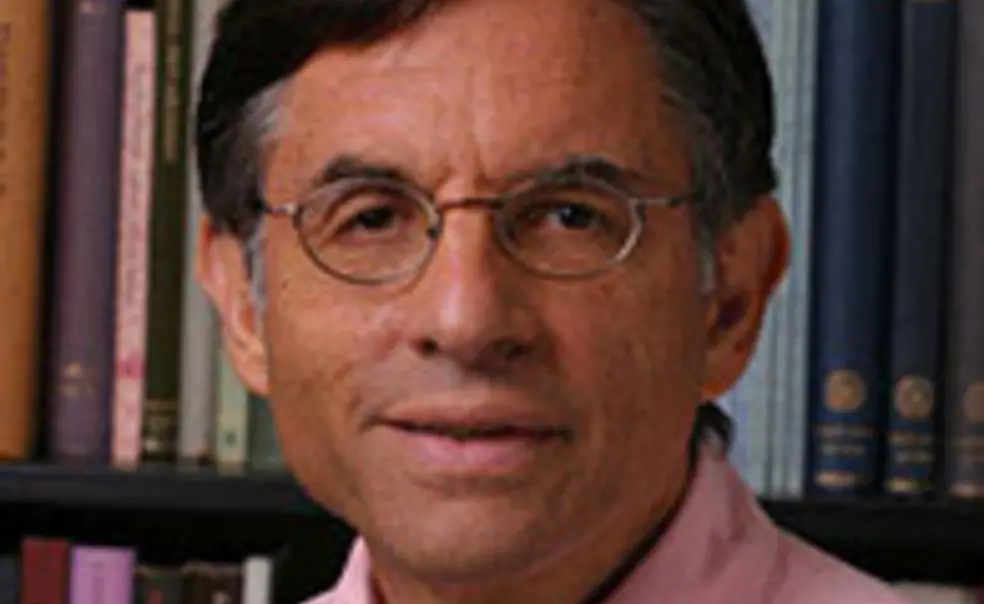
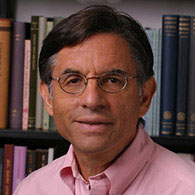
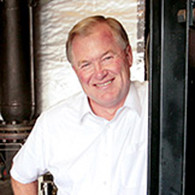
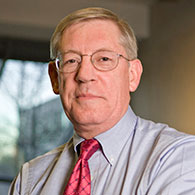
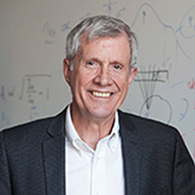
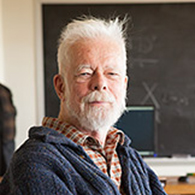
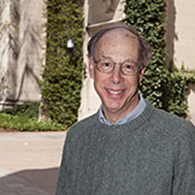
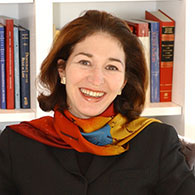
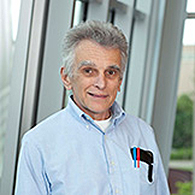
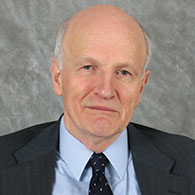









No responses yet